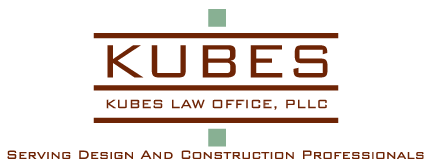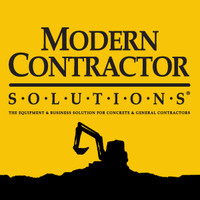New Minnesota Laws Impose Sanctions
Article on MCS website here: https://mcsmag.com/managing-regulatory-risks/
For larger contractors operating in several states, it is important to stay current on changing local labor laws. Minnesota, for example, has just enacted law that will impact employers on issues critical to business—how employees are paid, notices required to employees, and employers’ related recordkeeping. Some of these laws carry civil or criminal penalties. Any company with employees in Minnesota needs to be aware of these new laws. Even though these changes have happened in just one state, they are representative of laws to keep track of in any state, to understand the variances in locations where you conduct business.
BACKGROUND
Minnesota’s Department of Labor and Industry (DLI) estimates that up to 40,000 Minnesota workers pursue wage theft complaints each year. Wage theft disproportionately affects non-English speaking workers and those in the construction and hospitality industries. To address the issue, the Legislature, with bipartisan support, passed the Jobs and Economic Development Omnibus Bill, which protects employees from intentional wage theft and imposes new disclosure and recordkeeping requirements on employers with employees in MN. These laws apply to ALL employers, regardless of the size of the business or number of employees.
CRITICAL DATES
Compliance with the new laws became mandatory on July 1, 2019. Criminal penalties and sanctions for wage theft went into effect August 1, 2019.
SUMMARY OF NEW LAWS
What follows is a summary of the most significant aspects of the new laws.
Notice to Workers (Amendments to Minn. Stat. § 181.032)
Effective July 1, all employers must give new employees a written notice with the following information:
- The employee’s rate of pay and basis for the rate, including whether the rate is hourly, weekly, daily etc.)
- The employee’s employment status, whether the employee is exempt from minimum wage and overtime, and on what basis the employee is exempt
- Allowances for meals and lodging (if any)
- Whether paid time off (sick leave, vacation) is available, how it will accrue, and how it may be used
- A list of deductions that may be made from the employee’s pay
- The number of days in the pay period, the regularly scheduled paydays, and the payday on which new employees will receive their first paychecks
- The legal name of the employer, as well as the operating name, if it is different
- The physical address of the employer’s main office, the mailing address if it is different, and the employer’s telephone number
The DLI has provided a sample Notice to Workers as a resource: www.dli.mn.gov/sites/default/files/pdf/employee_notice_form.pdf
The Notice is provided in English, but includes a notice in the 12 most commonly spoken languages in Minnesota informing employees that they may request the Notice in another language. The DLI is in the process of translating the complete Notice to Workers into these 12 languages.
The law is specific about the employer’s requirements for handling the Notices:
- Employers must obtain each new employee’s signature of this Notice.
- Employers must keep a copy of the signed Notice for each employee.
- Employers must notify their employees in writing of any changes to the information in the Notice BEFORE the date the changes take place, including changes to rate of pay.
- The Notice must be provided to all new employees, including executive level, salaried employees.
Earnings Statement Information (Amendments to Minn. Stat. § 181.032)
Earnings statements that MN employers provide to employees must now include additional information. This amendment applies to earnings statements for all employees. Earnings statements must now include the following specific data:
- The employee’s rate of pay
- The method of calculating pay (hourly, weekly, daily, etc.)
- Allowances for meals and lodging, if applicable
- The employer’s physical address, mailing address if different, and phone number
Employer Recordkeeping Requirements (Amendments to Minn. Stat. § 177.30)
MN employers must keep the following information 1) either where employees are working; or 2) so that it is available to employees on-demand (defined as within 72 hours of the time of request) by the DLI Commissioner:
- Hours worked for employees paid by piece rate and the number of pieces completed
- A list of the personnel policies that were given to the employee, including the date on which the policies were provided and a description of the policies
- A signed copy of the Notice to Workers described above
An employer who fails to comply with these recordkeeping requirements may be found guilty of a misdemeanor (a criminal penalty) under Minnesota Statute 177.32.
Payment of Wages and Commissions (Amendments to Minn. Stat. § 181.101)
- All earnings (including gratuities) must be paid every 31 days, and all earned commissions must be paid “at least once every three months.” An employer’s failure to pay employees earned commissions can result in the Commissioner collecting and paying the commission, plus penalties—all of which would be assessed against the employer.
- “Wage Theft” occurs when:
- Any employer, with an intent to defraud, fails to pay the employee’s earnings or commissions
- Directly or indirectly has an employee give a receipt for wages greater than the wages actually paid
- Directly or indirectly demand that the employee give a rebate or refund of wages owed
- Makes or attempts to make it appear that the employee was paid wages greater than the amount actually paid
The Crime of Wage Theft (Amendments to Minn. Stat. § 609.52)
Minnesota amended its criminal code to include the crime of wage theft and provide for imprisonment and fines for wage theft as low as $500. As the value of the stolen wages increases, so do the penalties and terms of imprisonment, up to 20 years and a fine of up to $100,000 if the value of the wages stolen is more than $35,000.
WHAT THIS MEANS FOR YOU
These new laws impose significant new reporting and recordkeeping requirements on any employers with employees in Minnesota—any size company, any type of employee. The prudent company will manage its risk by immediately reviewing its protocols and processes related to each of the new legal requirements, make necessary changes immediately, and engage legal counsel to assist as needed. The MN DLI will respond to direct inquiries at dli.laborstandards@state.mn.us.
About the author:
Kristine A. Kubes, kristine@kubeslaw.com, is a construction attorney and principal of the Kubes Law Office, PLLC, Serving Design and Construction Professionals. A frequent educator and advisor on ethical practice, licensing, and risk management for the design/construction markets, Kristine is the incoming national Chair of the American Bar Association Forum on Construction Law. This article does not constitute legal advice. Each case must be evaluated on its own facts.





